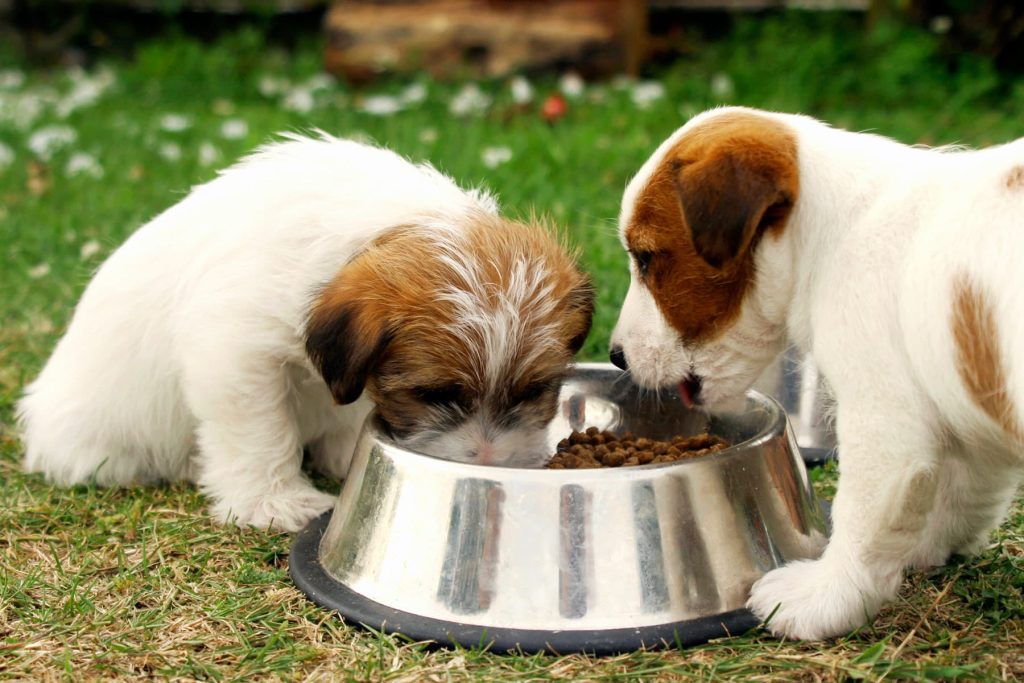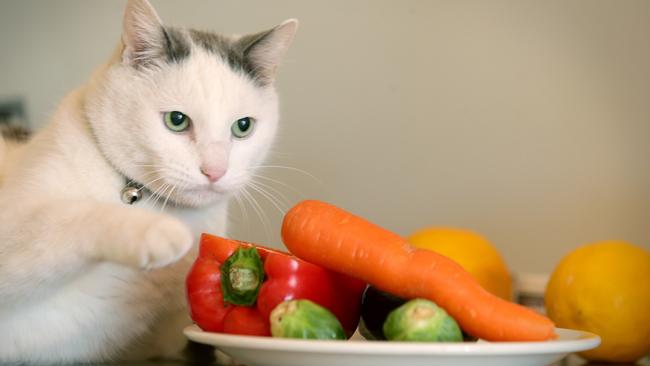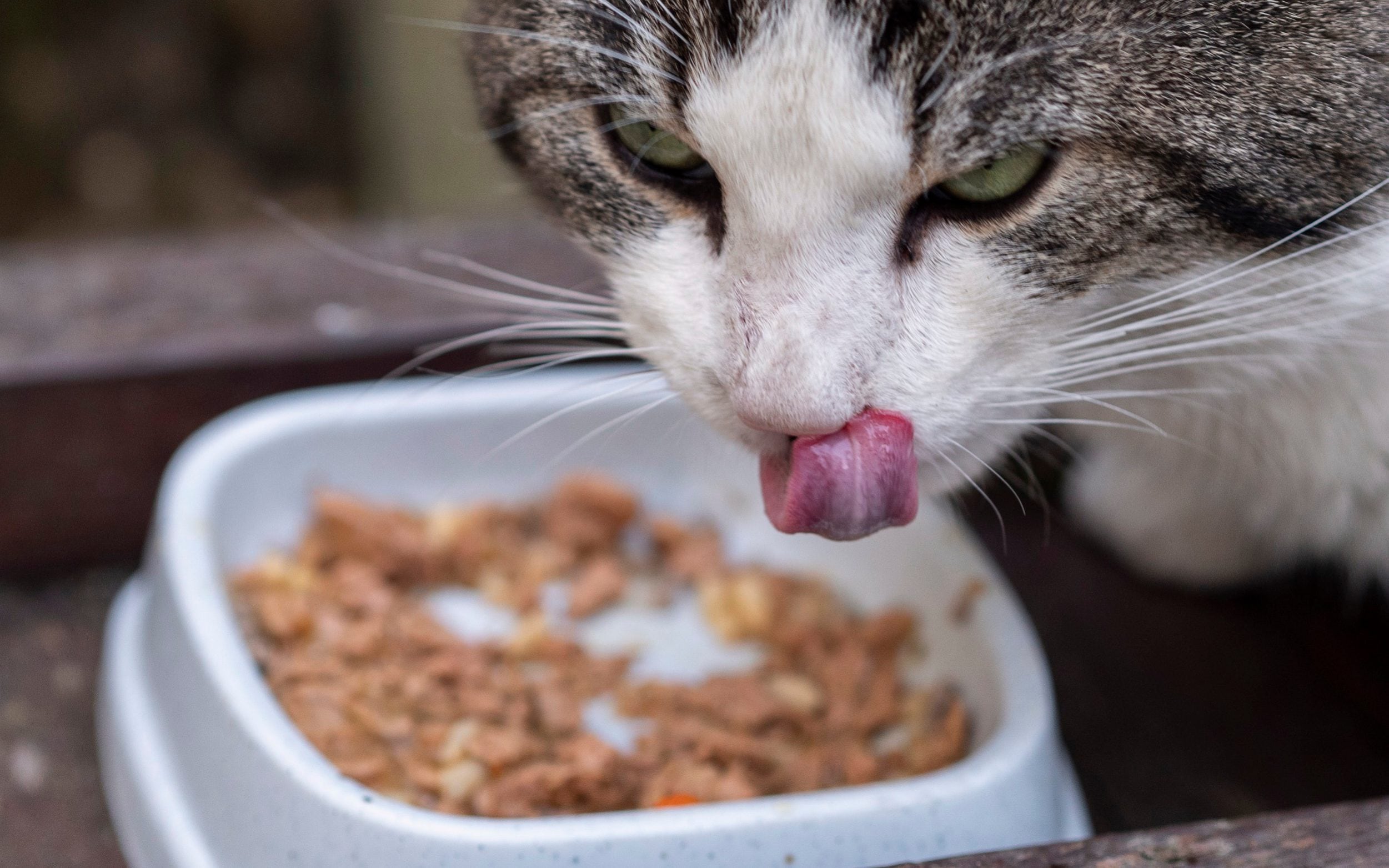The rising popularity of vegan lifestyles has led some people to consider feeding vegan diets to their pets as a “cruelty-free” alternative to normal meat-based kibble. Because marketing has led people to believe that their dog or cat is able to thrive on a meatless diet, they feel comfortable imposing their ethical views about eating animal products or the agriculture industry onto their pet’s lifestyle as well. However, this is a situation in which human morality not only does not apply to animals but also ends up being dangerously inhumane when expected to be ethical. Canine and feline bodies are not built to subsist singularly on plant matter; both cats and dogs evolved to subsist on a meat-based diet – dogs as opportunistic omnivores and cats as obligate carnivores. Dogs on a vegan diet are very likely to suffer from malnourishment that will drastically affect their quality of life, while vegan-fed cats are guaranteed to be sick and risk death from malnutrition. Recent research into the evolutionary history and gastrointestinal tracts of both dogs and cats proves that it is unwise, if not outright cruel, to feed them a truly vegan diet.

Visible Physical Attributes Indicate Meat Is A Primary Food Source
There are multiple places in which the physiological evidence for this predisposition to carnivory is easily visible in domestic cats and dogs. Both species have molars that are shaped to best crush bone and grind viscera. Animals with a more herbivorous diet will have differently shaped dentition: cows have flat molars to pulverize plant matter and humans have a mix of grinding and tearing teeth to allow an omnivorous diet. Cats have far fewer grinding surfaces than dogs do – their dentition is entirely geared towards shearing meat and bone. This is even evident in regard to jaw motion, as herbivores like cows have wide, flat molars and jaw muscles that allow them to chew side to side with repetitively with ease, while carnivores like cats and dogs have a large vertical range of motion in their jaw that allows for efficient removal of a single mouthful of food without the need for chewing.
Cats and Dogs Are Internally Primed For Protein Digestion
Being carnivores, dogs and cats both have a short intestine length and are predisposed to do best on diets composed of quickly digestible foodstuffs like protein. Evidence for this can be found in their highly concentrated stomach acid, which has a high amount of enzymes that break down protein, and the lower levels of enzymes that break down carbohydrates (amylase) in their intestines. Cats and dogs also don’t have many of the specific enzymes that are required to digest many complex plant proteins. While not all carbohydrates are like this (corn and rice are easily digested by both species, if processed correctly), this can mean that less-digestible high-carbohydrate diets pass through the intestines of cats and dogs too quickly for the carbohydrates to be properly broken down and absorbed, and the end result is a lot of poop and not much nutrition. All animals need some amount of fibre to maintain a healthy intestinal lining and to prevent diarrhoea, but too much fibre can impair protein absorption and cause digestive upset. Based on the short, simple intestines of dogs and especially cats, we can see that they have fast passage rates, and therefore need easily-digestible, nutrient-dense food so that their physiology can make the most of what they do eat, and meat best fulfils all of those those requirements.
Plant-Based Diets Deprive Your Pets Of Crucial Nutrients
The inability to efficiently utilize carbohydrates as sources of energy is not the only problem with grain-heavy diets for dogs and cats: there’s also the issue of essential nutrients. The concept of essential nutrients is a common one – they are nutrients the body cannot create for itself that must be acquired regularly from the diet for an animal to survive. (For instance, vitamin C is a well-known essential nutrient for humans, guinea pigs, and some bats.) These can be amino acids, which build proteins; fatty acids, which build lipids; or vitamins. Imbalances or deficiencies in any of these can make a dog or cat very ill, and many of them are very hard if not biologically impossible for carnivores to synthesize from plant-based diets.

Malnourishment From Feeding Cats and Dogs A Vegan Diet Could Kill Them
A dog on a vegan diet will survive, but will rarely thrive, as their bodies are constantly on the edge of nutrient deprivation. Whereas a meat-based diet easily provides all the essential nutrients they need to survive, a plant-only diet provides insufficient quantities of these nutrients, and often in forms that are particularly difficult for dogs to process. Vegan dogs will be prone to B and D vitamin deficiencies and will be malnourished due to their physical inability digest large quantities of plant matter.
A cat on a “truly vegan” diet will be, at minimum, severely ill and at risk for permanent physical damage. Cat metabolisms are similar to race car engines: they require high-quality fuel that burns quickly, and only operate well within a very narrow range of conditions. Cats must ingest sufficient amounts of high-quality meat protein on a regular basis or their bodies will start digesting their own tissues in order to continue functioning. Plant-based diets lack the necessary concentrations of every essential nutrient a cat needs in large quantities, and the results of this shortage on a cat’s health are horrific: on top of Vitamin A, B, and D deficiencies, arginine shortage will become fatal after only a few meals, and chronic taurine and arachidonic acid deficiencies will lead to irreversible degeneration of teeth and vital organs. In combination, any of these deficiencies can and will kill a domestic cat.
Vegan pet diets are simply unable to reliably provide the correct balance of nutrients and protein to carbohydrate ratio needed to fulfil the unique and complicated requirements of animals optimized for a carnivorous lifestyle. These animals, especially cats, did not evolve to subsist on carbohydrates and no amount of wishful thinking will cause an animal’s digestive system to change from the gluconeogenic cycle it has been optimized for over millennia.
Most pets don’t get to make much of a choice about what they eat, so it is up to their human owners to make sure they are getting a healthy, optimized diet that will allow them to live long, happy lives. Attempting to enforce human-centric standards of ethics on an animal that will suffer from it has no place in pet ownership.
